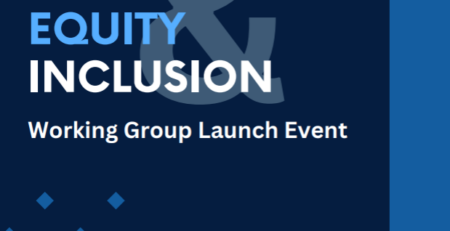NextGen2015 – Awards and Speech from Richard Hooper
The Broadband Stakeholder Group (BSG) were very pleased to support NextGen2015 latest annual event Costs Down, Value Up: Reviewing Connectivity Infrastructure Investment in the UK that took place last week.
Our Chairman, Richard Hooper, joined an extensive list of speakers including Anna Krzyżanowska – Head of the Broadband Unit at DG CONNECT, Edgar Aker – President FTTH Council Europe, Barney Lane -Director of Regulatory Affairs – Colt Technology Services and Mike Locke – Managing Director Satellite Internet. Richard’s speech, Is the UK on track to meet its digital needs, is replicated in full below.
Following the event NextGen held a dinner at the House of Lords where they announced their Digital Challenge 2015 winners. Now in its fifth year there were seven categories across a range of topics including digital inclusion and innovative network designs.
The winners were: Northumberland County Council (Digital Inclusion and Skills Awards), Glasgow City Council (Digital Innovation Award), RunAClub (The Intelligent Communities Award), The States of Guernsey (Open Data Award), Lothian Broadband Networks (Rural Networks Award), Just Park (Sharing Economy Award) and last but not least CityFibre (The Urban Network Award).
More information on the awards is available here.
Are we on track to meet the UK’s digital needs?
Richard Hooper CBE, Chairman Broadband Stakeholder Group
The exam question – Are we, in the closing stages of AD 2015, on track to meet the UK’s digital needs?
The evidence
To try and answer that question let us look first of all at the data, at the evidence. One of the many things I learnt from my time as founding deputy chairman of Ofcom from 2002 was the importance of evidence. Ofcom has become well regarded world-wide because of its focus on evidence as central to sectoral and economic regulation – although I fear that in political circles “evidence-based decision-making??? has almost become an overused cliché.
Ofcom released in February 2015 an update to its European Broadband Scorecard. The report benchmarks the UK’s performance on fixed and mobile broadband against four other major EU countries – Germany, France, Italy and Spain. The UK is no 1 on the majority of criteria used.
BSG summarized the evidence as follows on our website: “Comparing the UK to other major European economies (Germany, France, Italy and Spain), the report indicates that:
- The UK has the highest level of coverage of Next Generation Access (NGA) broadband (providing speeds in excess of 30Mbps)
- Take up and usage of fixed-line, mobile and NGA broadband in the UK remain amongst the highest
- The UK offered on average the cheapest communications services (fixed broadband, fixed voice, mobile phone, mobile broadband and pay-TV), followed closely by Germany.
- Consumers in the UK are provided with a wider choice of fixed-line broadband providers than in other countries. German consumers have a slightly wider choice of mobile broadband providers than UK consumers.???
But there is great difficulty in getting comparable data for broadband across different countries, as Ofcom acknowledges, so pinches of salt may be needed. In this debate people tend to reach for the data that supports their argument.
Let’s look at some more evidence:
In February 2015 the European Commission published its Digital Economy and Society Index (DESI). The UK ranks the 6th best digital performer out of the 28 European Union countries – behind Denmark, Sweden, the Netherlands, Finland and Belgium.
In July 2015, the Media Institute, a US not-for-profit research organisation, based on a qualitative and quantitative analysis of the global broadband internet system, identified the US, South Korea, Japan, and the UK as the top-tier global broadband leaders. Its UK findings are as follows:
With regard to average fixed broadband connection speed – the UK ranks 14 out of 54 countries; the top 5 countries being South Korea, Japan, Hong Kong, Switzerland and the Netherlands. It is worth noting however that the Akamai “State of the Internet??? report published in June 2015, identified the UK as having the fastest average mobile connection speed (62 countries/regions were considered).
With regard to the percentage of the population with a fixed broadband connection speed above 10Mbit/s – the UK ranks 13 out of 54 countries with a percentage of 32% (South Korea 77%, Japan 54%, the Netherlands 44%).The latest Ofcom Infrastructure report (2014) indicates however a higher take-up rate in the UK (43%) so just behind the Dutch. With regard to lowest broadband prices worldwide – the UK ranks 6 out of 161 countries. Finally, with regard to available WiFi locations – the UK ranks 3 out of 10 with more WIFi locations than the US, China and France but less than South Korea.
The Boston Consulting Group has consistently reported that in e-commerce the UK is a world leader. This broadband next generation story is not just about boring old pipes and poles and infrastructure it is about real use by real people at home, in business, in life. Measuring the internet economy as a percentage of GDP (in March 2012), the UK according to BCG comes out easily top with 12.4% forecast for 2016 and fast growth in the period 2010 to 2016, ahead of South Korea, China, Japan and the USA. The US percentage of GDP forecast for 2016 is surprisingly only 5.4% (half the UK) and with much slower growth (a sixth of the UK’s annual growth over the same six year period – 2010 to 2016). If the BCG is to be believed, the UK gets the digital economy more than any other country including the USA – and the digital economy has at its foundation broadband – coverage (homes and businesses passed), take-up (actual purchase and use), speed and price.
Subjective judgements
So the data, the evidence are useful but hardly conclusive in answering the exam question you set me. Everyone as I said can find data somewhere to support their argument and refute the opposition’s argument. Let me therefore turn to more subjective judgements. They are very polarized. Let me repeat that. They are very polarized. And as Chairman of the Broadband Stakeholder Group, it would not be appropriate for me to take sides. But I am in a strong position to describe the polarized views, talking regularly as I do with Government, with Ofcom, with BSG stakeholders, with pressure groups and individual experts.
On the one hand you have what I may call the Establishment view shared broadly by, for example HMG and BT. On the other hand you have the anti-Establishment view shared by the smaller competing broadband companies, individual experts and organisations like Malcolm Corbett’s often fiery INCA – the Independent Networks Cooperative Association.
Before describing these two polarized views in more detail, I can say from the viewpoint of the Broadband Stakeholder Group that both sides are in more agreement now than ever, on the challenges that the sector faces. I would outline three that I see everyone can agree on:
- Building networks which are capable of dealing with the huge demand for data – which is different to demand for bandwidth – over the next 5-10 years, not just from users who are increasingly on the move, but via the Internet of Things and Machine to Machine communications.
- Bringing in the investment that is needed to deploy these networks and enable the next generation in wireless technology – 5G – although of course the different parties disagree on which regulatory model is the best to deliver those investments
- Digital Inclusion – one which I feel gets far too little attention. How do we ensure that the 11% of adults in the UK today who have never been online are not left behind?
To the views. The Establishment view would be that the UK is doing rather well, both absolutely and relatively, and is indeed on track to meet its digital needs – although with no cause for complacency given the speed and creative destruction of the digital whirlwind. Following success with local loop unbundling of copper and service-level competition feeding off layer one, building on an operationally separated Openreach, FTTC – Fibre to the Cabinet – is, in the Establishment view, the most sensible next stage and the most cost-effective for the present. There is no point tearing copper out of the ground and replacing it with optical fibre when copper can these days carry faster and faster speeds – see BT’s experiments with G.Fast. BSG’s own studies of bandwidth requirements in the home, out of home and in small businesses done for us by the well-regarded Rob Kenny at Communications Chambers tend to support the Establishment view, although they have been slightly misunderstood by some anti-Establishment supporters. These studies are available on the BSG website if you have not seen them.
In summary Rob’s Domestic Demand for Bandwidth report said in November 2013: “Looking across households, the model indicates that the median household will require bandwidth of 19Mbps by 2023, whilst the top 1% of households will have demand for 35-39 Mbps.??? The anti-Establishment people did not like these findings but have not managed to break the model – yet. Politicians around the world talk much about speed often in a macho male virility way: “my broadband is faster than your broadband???. What matters is the users’ quality of experience. At a recent meeting of the BSG Executive, Ben Burns, Practice Director of Actual Experience, gave a seminar on “Speed: not the primary driver of quality of experience???. He pointed out that their research shows clearly that, for the average domestic individual consumer today, 8-10 Mbps is fine and beyond that speed is just not an issue. Now of course, you have to be able to get 8-10 Mbps first and for too many that is still an issue but beyond this level the capacity of the access network is not the primary driver of quality – issues such as the in-home network, the ISP’s network or upstream OTT actors play a greater role.
Now to the anti-establishment view. The UK should not spend any time or money on fibre to the cabinet – at best a transitional technology. We should drive fast and immediately to FTTH FTTP – fibre to the home and fibre to the premise. Faster speeds will unlock applications and uses that today’s consumer or business cannot imagine because they have only much lower speeds. Consumers do not need what they don’t know. As Steve Jobs famously said if you’d asked a focus group what they’d want to do with a mobile phone, they’d have told him they want to make voice calls! Akio Morita the great founding chairman of Sony met with me when I was at BT in 1980 and said, in relation to the success of the Sony Walkman: “You cannot market research an innovation???. So, given we do not know what the future will bring, what needs will be, the UK is therefore not on track to meet its digital needs. As part of this, the anti-establishment view wants copper switch-off and wants it now.
Steve Unger of Ofcom at a recent meeting of the International Institute of Communications UK Chapter made an important and I find clarifying distinction between two very different types of copper switch-off. It can be defined as PSTN switch-off, the end of circuit switching (going very strong back in 1980!) and the move to an all-IP platform carrying telephone calls as just one of the many platform services. Copper switch-off can also be defined as removing all copper from the fixed network and replacing it with fibre. We should all be clear which one we are referring to or possibly both. The anti-Establishment I believe wants both and wants them soon.
Regulation & public policy
Perhaps not surprisingly, these polarized views do spread into disagreements about public policy towards broadband and regulation of broadband. Of course Ofcom is in the middle of a major review of digital communications (what ten years ago we called the Telecoms Strategic Review). The anti-Establishment will, perhaps a little reluctantly, agree that the last decade of regulation – local loop unbundling of BT’s copper – has worked pretty well, with over 500 internet service providers/broadband providers using Openreach infrastructure including the big players like Sky and Talk Talk and a plethora of smaller and even regional players. But the anti-Establishment does not think that the regulation of Fibre to the Cabinet works so well in delivering infrastructure or service level competition. The DSLAMs that competitors to BT Retail put in the BT exchanges, which access thousands of potential customers, do not work in cabinets accessing a few hundred – do not work either technically (cabinets too small) or commercially (market too small).
The anti-Establishment are hoping that Ofcom with its Digital Communications Review can come up with better answers for FTTC and FTTP/H. My own intuition tells me that Ofcom will move the pendulum, set firmly at service level competition in 2005, more towards infrastructure competition. The arguments rage as to whether investment in fibre and the future is more encouraged by infrastructure facilities-based competition than in requiring telcos to open their networks to competitors in service-level competition. The FCC in America would say facilities-based competition encourages more investment, although even a brief look at the debate there and the number of court cases would tell you that this brings its own problems. We will have to wait for Ofcom’s answer. What happens to dark fibre and how it is priced are probably the biggest regulatory challenge in my view.
The anti-Establishment is also extremely critical of public policy towards broadband roll-out using BBC licence fees ie public funds. BDUK, which is based in the Department of Culture Media & Sport, has until very recently awarded every single roll-out contract using public funds to BT. The altnets think that is unfair, discriminatory and a missed opportunity. Of course there is a regulatory view, which is not so fashionable these days, that broadband over the last mile is a natural monopoly anyway like water pipes, electricity and gas pipes. It is uneconomic, the argument goes, for two people to dig up local roads and put two pipes into people’s houses. This moves the argument back to service level competition amongst retail service providers (plural) and to demands for Openreach to be structurally separated from BT – two different companies – as has happened in countries like Sweden and New Zealand.
Conclusion
So are we on track to meet the UK’s digital needs? You will have noticed that I have not myself answered the question but given a range of answers that are current to the question.
But I will in conclusion answer it – very partially – in two ways. First of all, I do personally think – and this is not a BSG view note – that we could and should set a date for PSTN switch-off. The UK made a great and world-leading success of analogue television switch-off, despite political concerns that it would all end in tears especially for older people who are not digital natives. And there are similar political concerns today about ending that extraordinary flow of electricity down the phone lines – emergency calls in the middle of the night during electricity stoppages or failures.
The spectrum released by the end of analogue television was immediately taken up by hungry mobile companies because of broadband data demand. Freeview, led by the BBC, has been a huge success replacing five channels with many many tv and radio stations, in excellent quality and high definition, and now smart televisions wifi-connected to the router to do tv on demand – the iPlayer etc. We should move to the all-IP platform as soon as possible but that does not imply tearing copper out of the ground and replacing it with fibre – that is, as Steve Unger said, a separate issue. All-IP platforms can and do work over copper. We should be careful what we use public funds to achieve. If someone wants 1 gigabit and is willing to pay for it, good on them. It is not clear to me that public funds should be used to meet this demand. Public funds should be used to grow the public good and reach to those parts of the country which the market left to its own devices will not reach. Quite a lot of broadband internet use is about private goods, private benefit, not public good.
My second answer to the exam question relates to the Open Internet. I think the UK industry working with the UK Government, Ofcom and the Broadband Stakeholder Group has successfully met an important digital need – the Open Internet – without recourse to regulation and statutes and regulatory commands. This has been achieved by a combination of three things – a high level of competition amongst broadband providers/ISPs here in the UK so if the consumer does not like a certain traffic management approach he or she can change to another provider; a self-regulatory code of practice about traffic management; and a self-regulatory code that does not permit for example ISPs to block legal content. I spoke about this at length at the Broadband World Forum a couple of weeks ago and the speech is on the BSG website. The UK has sorted out the net neutrality debate, which is raging in America, without any heavy-handed regulation. And it works. Brussels, take note please.
I have given you two very small sub-answers to the question – Are we on track to meet the UK’s digital needs?
I hope I have given you some insight into the range of answers that you will find across the UK to the exam question. Take your choice.





